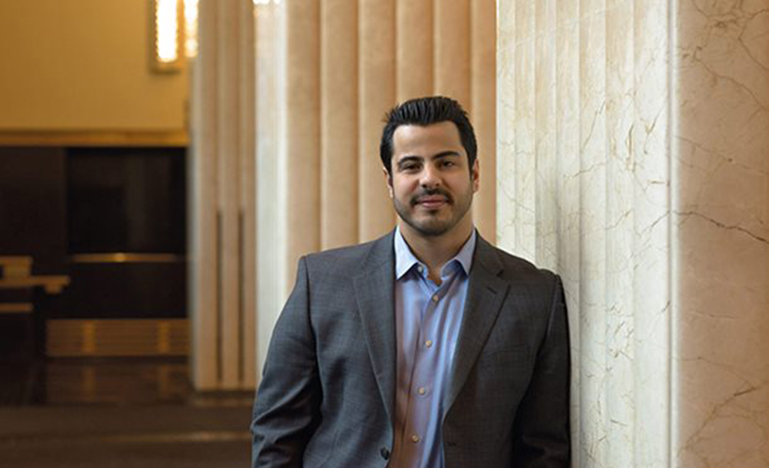Andrew Arruda’s big bet on AI
CBA National caught up with Andrew Arruda, one of the co-founders and CEO of ROSS Intelligence, the artificial intelligence-based legal research platform. Yves Faguy asked about the hype surrounding AI, what it means for law firm hiring and what legal organizations should do about it.

CBA National: So, is artificial intelligence being overhyped in the legal marketplace?
Andrew Arruda: As with most new technologies, oftentimes people overestimate where it is today and underestimate where it is going tomorrow. When you interact with an AI system, what typically occurs is that humans want it to be able to do every single thing a human can. And that’s because they grow up watching sci-fi, etc. But that’s just not where we are with AI today. It’s not going to be able to go into court and argue a matter for you, and I don’t know if it ever will. But it’s already adding a ton of value. We see it in legal research, finding better results. You see companies who have brought it into the diligence space – it offers a lot of efficiencies there. Really when you start moving lawyers away from information retrieval so that they’re not doing that, they focus in on high impact work, advising clients, and that speeds up their learning curve.
N: What about the impact on hiring at law firms?
AA: Well right now, and since [the financial crisis in] 2008, big law firms are not hiring the same numbers of associates as they did in the past. So this means that younger associates are being forced to work way more hours to keep up with the same workflow. And so by bringing in tools that are built with AI, those associates can really work most efficiently and focus on the tasks that are really human and that they most likely want to do.
N: How should a firm or a legal department go about adopting an AI strategy to be successful?
AA: I think law firms have two choices. They can hire AI talent and compete with companies like ROSS and Google for that talent, which is tough, and then build those things in-house. Or they can partner with AI companies who go in and can essentially help them with their strategy and perhaps even build a whole other set of tools for them.
N: And what do we underestimate about it?
AA: You know, it’s interesting because you have Google, Amazon, IBM, Facebook, Microsoft. Every single major tech giant has gone on the record and said that they are becoming an AI company. So very few times in history have you seen a new technology lead to the alignment of every single tech giant. They’re saying: “This is what’s happening; this is where we have to make our biggest bet.” But then on the flip side you have someone in law who has no computer science background whatsoever saying stuff like: “Well, you know, I just don’t get AI. And, you know, I don’t see where this is all going.”
N: How do you explain that?
AA: Lawyers try to be a jack-of-all-trades. Maybe they’re missing out on the market trends that are occurring around them. The same thing happened in law with computers, the internet, email and even the telephone. I saw a pretty awesome quote once where a judge said that the telephone is below a lawyer to use. So there’s a general attitude against technology, typically, in the legal industry. That’s changing because with the state of the market people just don’t have a choice.
This interview was edited and condensed for publication.


